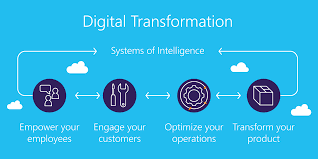Though business has changed drastically in the Internet Age, these age-old SOPs can still save your sanity
Contrary to the popular belief of some employees, a management style that relies on standard operating procedures (SOP) does not have a primary goal of driving everyone bat guano crazy with detail-oriented documentation. Actually, the entire point of SOPs, done correctly, is to make an organization more efficient by saving time and effort when faced with recurring situations. As the digital transformation of business quickens and the globe shrinks, never has it been more important to put processes in place that support the scaling of companies into a position to take advantage of the profit potential in international markets.
When the internet lurched into the mass consciousness back in the mid-1990s, it was impossible for most businesses to comprehend the ultimate effect it would have. Now, almost a few decades into the 21st century, we can look around and see that the digital transformation, if not quite complete, is closer to the end of full assimilation than the beginning.
In other words, almost every business is a digital business. Even the local lawn care specialist probably has either a website, Facebook page, or both and spends half his or her day texting and emailing current and potential customers.
Let’s peel back the onion…
1. You Do Have Processes, Right?
Before we dive into the digital transformation and international marketing side of things, we should cover some more basic territory. Do you have processes that exist only in your head or maybe not at all? Here’s the problem with that. Let’s use as an example the process of onboarding a new customer.
There is a plethora of information to be collected, but the worst way to do it is grab a scrap of paper and just start writing down the answers to whatever random questions you think to ask. If you’re the boss or a longtime employee, you likely know the right questions but the new receptionist you just hired doesn’t and maybe you don’t realize what a terrible job he or she is doing until down the road. A word processing document or form to collect complete and pertinent information would work wonders and – surprise – that’s an SOP.
2. Every Process Should Be a Digital Process
No matter the organization’s size or product/service selection, it’s a good idea to sit down and analyze all the processes you use (or should) on a daily basis. It might be interesting to actually write down how many are digital and how many are, for lack of a better word, analog. Once you have your list written out – or, better, typed into a word processing document – it’s time to put on the management hat and figure out how to herd any lingering analog processes into the digital realm.
We won’t spend too much time convincing you of all the reasons to go digital. If you don’t get that yet, then say hello to the dinosaurs when you meet them in Extinct-ville. We don’t mean to be harsh here, but reality is knocking on the door. Now is the time to make all your processes digital.
3. International Marketing – Don’t Hit the Self-Destruct Button
It used to be that a small business didn’t have to think too much beyond the boundaries of the town it operated in, much less the larger world of other countries. The planet somehow feels smaller now, though, thanks to the internet and digital transformation. You might find that half your customers live on the other side of the globe. Maybe more.
If you think the lack of SOPs will create a headache on the local level, you ain’t seen nothing yet. Wait until you’re dealing with multiple time zones, language barriers, and all kinds of different government agencies. Without a checklist to guide every employee through the associated processes, it will be difficult to scale into a successful international business. Instead, expect to become a master in chaos shortly before corkscrewing into bankruptcy.

4. New Assets – New Strategy
Social media accounts are one area where a company can fail miserably. It’s not unusual for a business account to have thousands, even millions of followers who were likely acquired very cheaply or at no cost. This is a freakin’ oil well sitting there waiting to spurt money into the sky. All you have to do is figure out how to tap into this digital asset.
A century ago, entrepreneurs would have given away a kidney for this kind of access to potential customers. So…what are you doing with your new assets? Do you have a SOP in place that markets to them on a consistent basis? Are you tracking what type of posts they engage with and and what kind draw a resounding, “Meh” from the crowd? For successful business scaling today, you absolutely, positively cannot afford to let this kind of opportunity slip through your fingers.
5. SOPs for the Micromanager
For this last point, we’d like to have a word with all you micromanagers, though our comments may fall on deaf ears. This kind of management style is literally bad for your health due to the stress it causes, not to mention it is a seriously inefficient use of your time.

You have to ask yourself a question. If I have to hover, check, and double-check an employees work product every step of the way, what do I need the actual employee for? Why not just fire them and do it all yourself?
Obviously, we’re here to suggest you consider creating and implementing SOPs that any half-conscious employee could follow in order to get a job done to the micromanager’s standards. If competence remains beyond their reach, even with an SOP, it might be time to find someone who can do the job unsupervised with clear instructions in place.
Your fallback position should not be to micromanage harder. Instead, plan on good processes and people who can follow them.
Final Thoughts
Here’s the big picture thought to ponder. Maybe the primary barrier to scaling up your business into an ever larger and more energetic version of itself aren’t competitors but rather a failure to deliver products or services correctly and on time. In other words, organizational incompetence. SOPs are GREAT at fixing that.
Thanks to Gary Stevens for his thoughts and opinions in this post. Gary is a front-end developer. He’s a full-time blockchain geek and a volunteer working for the Ethereum foundation as well as an active Github contributor.
